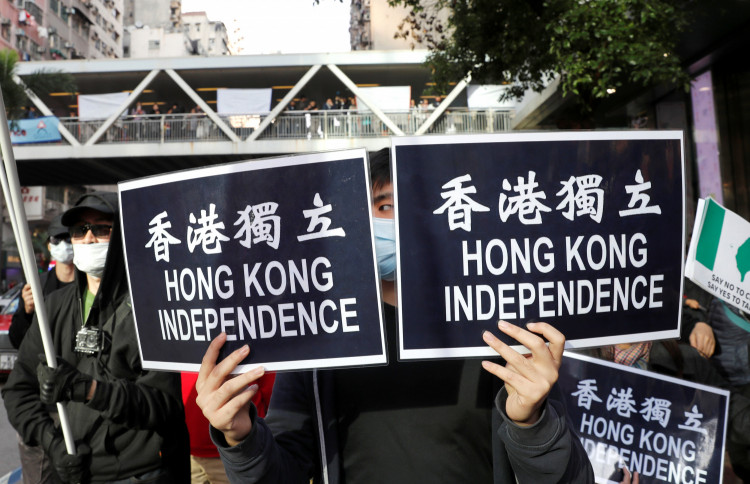Hong Kong officials are making significant moves against the disrespect of China's national anthem as it has been revealed that they are working to criminalize anyone who deems the anthem in low regard.
In a new report by The Wall Street Journal, it is said that the local government is seeking to push a bill that will see people who disrespect the national anthem behind bars. The bill will reportedly be unveiled on January 23, in front of the pro-Beijing legislative body.
Mainland China already has a law that does not allow the national anthem to be sung at certain events such as funerals, parties, and even weddings. The newest bill is seeking to further tighten its guard on patriotism.
The bill draft stated that no person can play the Chinese national anthem "in a distorted or disrespectful way, with intent to insult." Both the song's score and lyrics may not be altered in any way. Fines of up to HK$50,000 may be laid out on offenders. More importantly, offenders may face up to three years behind bars.
According to The Telegraph, secretary for constitutional and mainland affairs, Patrick Nip said the bill seeks to "preserve the dignity of the national anthem and promote respect." When asked about the details and limitations of the new bill, Nip declined to answer but he noted that the bill will take power based on the "intention" of a supposed offender. Opposing parties have yet to release an official statement regarding the matter.
On the matter of performing the national anthem, Nip further explained that the local government will ease up on singers who unintentionally cannot perfect the original score.
The new bill is strongly linked to the routine actions of Hong Kong football fans who have been booing China's national anthem for years now. Other fans have also defiantly put up banners encouraging their countrymen to stay independent from mainland China, as Britain has designated over a decade ago.
Hong Kong's autonomy stems from an agreement with Britain that separates Hong Kong's legal system from the mainland. The 1997 agreement is supposed to guarantee the city's liberation for 50 years, giving Hong Kong over 30 more years to bask in their freedom from mainland China.
Anti-Beijing analysts have claimed that China is breaching the agreement, especially focusing on Hong Kong's freedom of expression and liberties from the mainland's legal system.
Some experts suggest that the enforcement of patriotism in Hong Kong may be a test against opposition parties who prefer to enjoy the liberties provided by the Britain deal.





